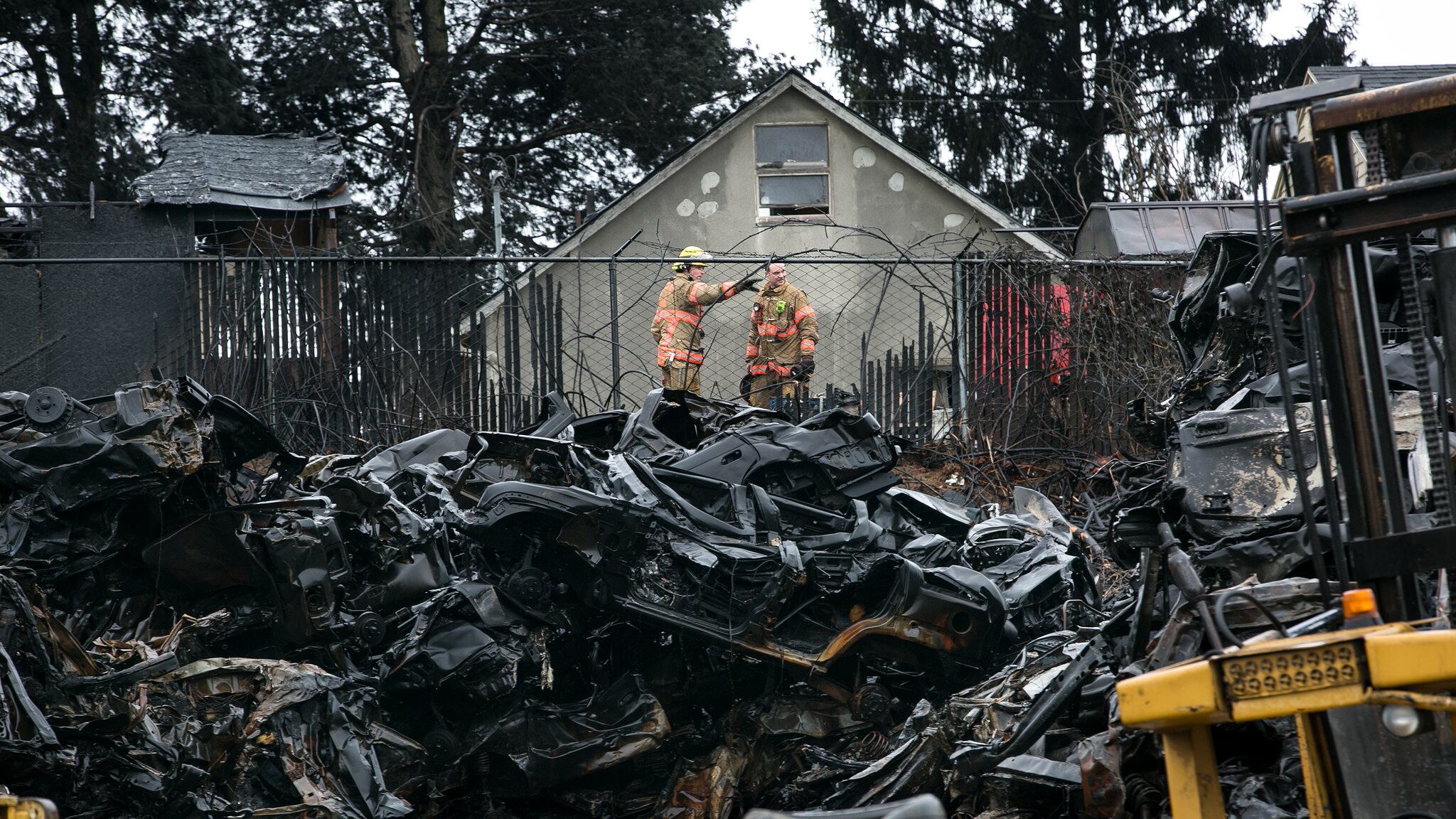State environmental regulators were warned of dangers at a Northeast Portland scrapyard months before it went up in flames last March—not just by neighbors and environmental watchdogs but by another state agency.
Three months before the fire, a workplace health inspector from the Oregon Occupational Safety and Health Division alerted the Oregon Department of Environmental Quality about oil and coolant seeping into the ground, public records newly obtained by WW show.
"The [inspector] observed large quantities of oil and coolant in the soil," an OSHA report from Dec. 7 states. "Large amounts of oil were also observed in the parking lot. The employer did not have any barriers or collection systems in place to prevent leaching or runoff into local water."
Yet DEQ inspectors didn't follow up on the complaint, or even visit the scrapyard.
The failure to respond shows a stunning lack of oversight by an agency now facing renewed public scrutiny.
Last week, WW examined regulatory efforts that might have prevented a five-alarm fire at NW Metals, an auto scrapyard where junked cars are stacked in a towering pile next to homes ("Hot Rods," WW, July 4, 2018).
Now Oregon House Speaker Tina Kotek, who represents the House district that contains NW Metals and the surrounding neighborhood, is pledging legislation to toughen DEQ regulation of auto scrapyards.
"The status quo for how scrapyards are regulated is unacceptable," says Kotek in a statement.
"I began outreach to DEQ immediately after the fire," she adds, "and while we are still evaluating the appropriate next steps at this time, I fully anticipate there will be action in the coming session to address the deficiencies in our system and prevent situations like the one in Cully."
As last week's WW story documented, NW Metals operator Moyata "Mo" Anotta had a history of pollution so extensive that a federal lawsuit pressured him to shut down a previous scrapyard. But no state safeguards prevented him from opening another scrapyard 1 mile east. DEQ received four complaints about the site of the new scrapyard between 2014 and 2017, but failed to spot problems.
The most recent complaint contains astonishing details.

In December 2017, the health inspector for the Oregon OSHA—the state agency responsible for workplace safety—first visited NW Metals.
She and other OSHA workers found NW Metals had a range of problems that posed a threat to workers, from poor "housekeeping" with broken glass strewn about the site to exposed electrical wiring.
Workers onsite also appeared unaware they were working with hydrofluoric acid, which is "extremely corrosive," according to OSHA.
Even the safety gear for the inspection proved insufficient. Anotta furnished the
Oregon OSHA worker with a hardhat to wear while touring NW Metals, but the hardhat "appeared extremely dirty on the inside and the integrity of the hat appeared to be compromised from storage in the sun," the Dec. 7 report states.
"The hardhat was also missing the inside straps."
Oregon OSHA levied $2,255 in fines.
The OSHA health inspector, Terra Gaines, also found evidence of violations she thought would be of interest to DEQ, including "large quantities of oil and coolant in the soil," according to her report. She alerted DEQ.
In a Dec. 13 follow-up email to the agency, Gaines noted NW Metals had "covered the pools of oil and car discharge with a pile of cars since I first made contact."
She took photos on that second visit of what appeared to be puddles with oil slicks.
The email went to DEQ's Mike Kortenhof, an underground storage tanks manager, and Peter Anderson, a specialist in hazardous waste. Kortenhof assured Gaines the case had been assigned to Anderson.
And then the agency failed to inspect until the fire.
There are signs that DEQ officials have started to address the failures the fire revealed. Officials released records related to the failure at NW Metals on multiple occasions within days of WW requesting them. They say they're not waiting for the Legislature to begin reforms—they've already started, by changing the way they handle complaints, including weekly check-ins on the status of complaints.
"Follow-up was not conducted in a timely manner," says agency spokesman Donald Oliveira. "DEQ has learned a great deal about the gaps in the complaint system since the NW Metals scrapyard fire and have taken steps to correct issues."
